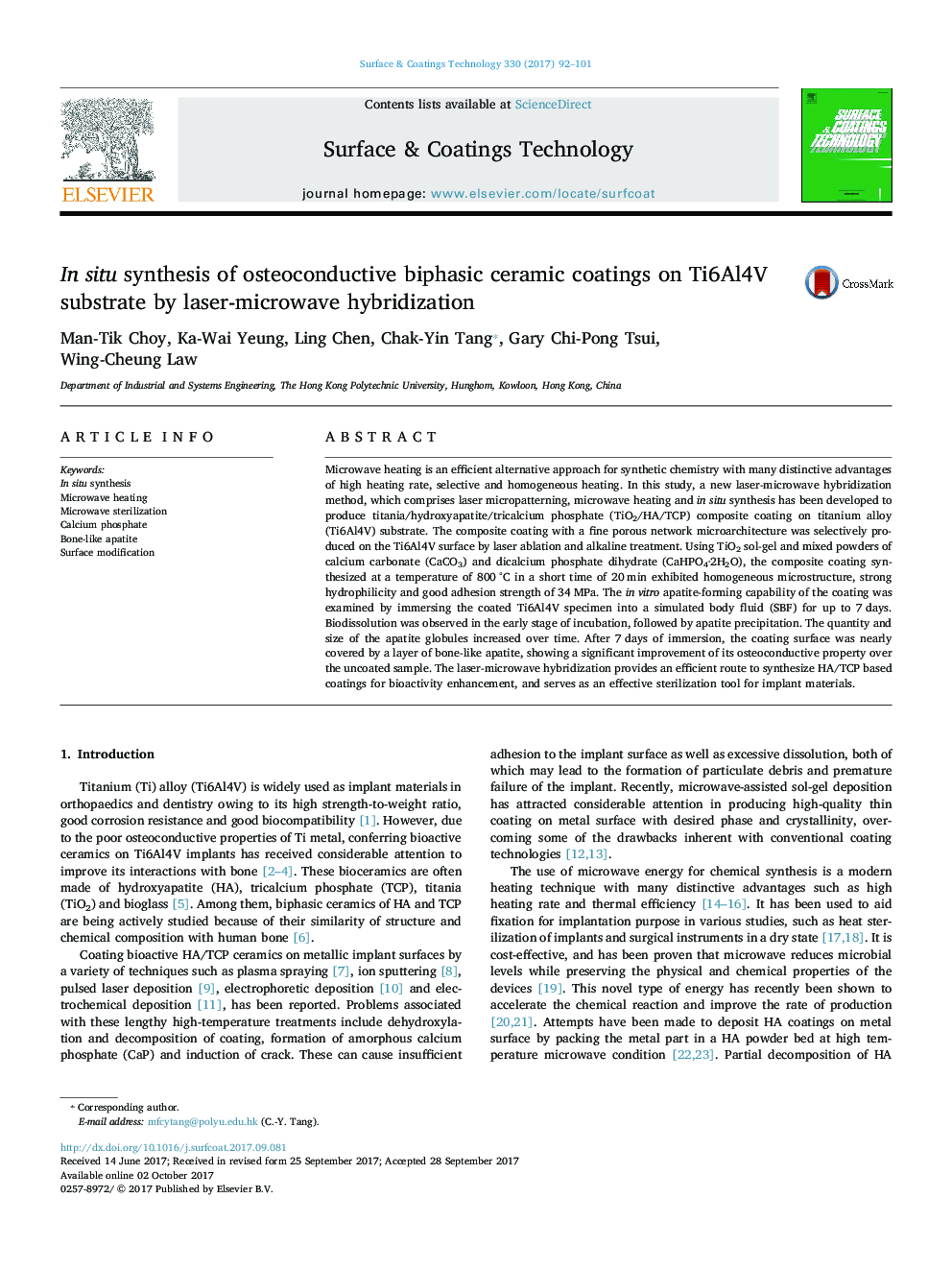| Article ID | Journal | Published Year | Pages | File Type |
|---|---|---|---|---|
| 5464380 | Surface and Coatings Technology | 2017 | 10 Pages |
Abstract
Microwave heating is an efficient alternative approach for synthetic chemistry with many distinctive advantages of high heating rate, selective and homogeneous heating. In this study, a new laser-microwave hybridization method, which comprises laser micropatterning, microwave heating and in situ synthesis has been developed to produce titania/hydroxyapatite/tricalcium phosphate (TiO2/HA/TCP) composite coating on titanium alloy (Ti6Al4V) substrate. The composite coating with a fine porous network microarchitecture was selectively produced on the Ti6Al4V surface by laser ablation and alkaline treatment. Using TiO2 sol-gel and mixed powders of calcium carbonate (CaCO3) and dicalcium phosphate dihydrate (CaHPO4·2H2O), the composite coating synthesized at a temperature of 800 °C in a short time of 20 min exhibited homogeneous microstructure, strong hydrophilicity and good adhesion strength of 34 MPa. The in vitro apatite-forming capability of the coating was examined by immersing the coated Ti6Al4V specimen into a simulated body fluid (SBF) for up to 7 days. Biodissolution was observed in the early stage of incubation, followed by apatite precipitation. The quantity and size of the apatite globules increased over time. After 7 days of immersion, the coating surface was nearly covered by a layer of bone-like apatite, showing a significant improvement of its osteoconductive property over the uncoated sample. The laser-microwave hybridization provides an efficient route to synthesize HA/TCP based coatings for bioactivity enhancement, and serves as an effective sterilization tool for implant materials.
Keywords
Related Topics
Physical Sciences and Engineering
Materials Science
Nanotechnology
Authors
Man-Tik Choy, Ka-Wai Yeung, Ling Chen, Chak-Yin Tang, Gary Chi-Pong Tsui, Wing-Cheung Law,
